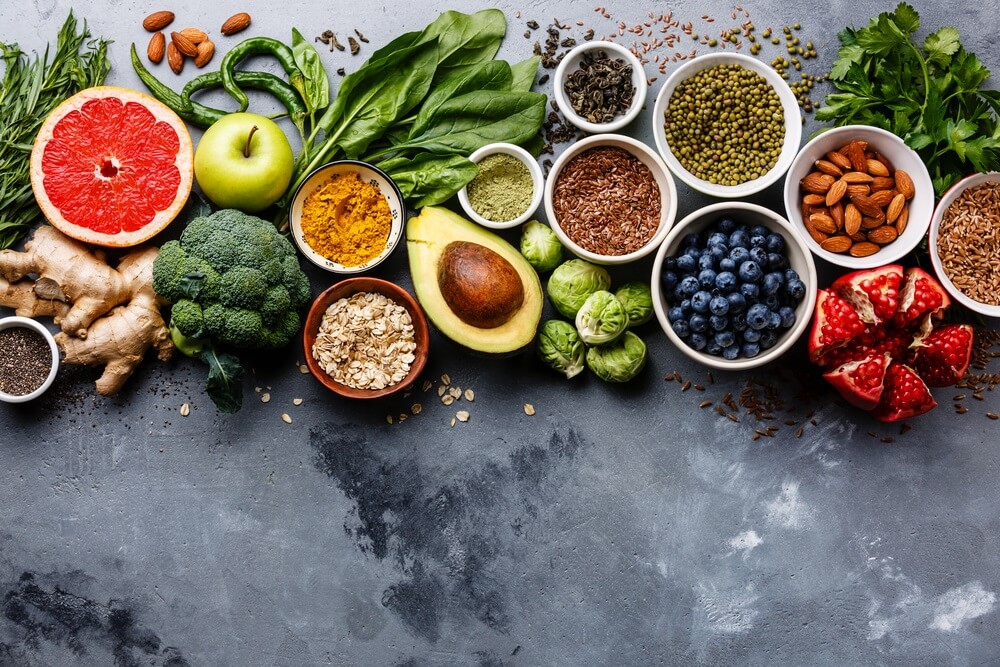
The narrative of healthy, wholesome food is always changing – “eat this for a long-life, eat that for a healthy liver, drink that for good digestion” and then the next week the same foods are considered bad for us. Trying to include good quality food in your diet can be confusing and overwhelming and it can be confusing on which publications and articles to trust when they change their mind every few minutes. Luckily, there is a trusted list of good, nutritious foods that you can include in your meals without it coming back to haunt you and facilitates a healthy lifestyle. You just need to find your preferences and start building your meal plan around your favourite tastes.
The Secret of Eating What You Like
As we get older, it can be more difficult to eat healthier as our ‘free-time’ becomes more restricted and seemingly most healthy lifestyle meals require meal prep and a long cooking time. However, that’s not always the case and there are plenty of meals that can be prepared in fewer than 30 minutes while supporting a balanced diet.
For example, skinless poultry and fresh vegetables are great for supporting a heart-healthy diet and can simply be added altogether to a roasting tray and baked in the oven until the juices run clear before enjoying for dinner. Two servings of this a week can drastically reduce strain on your heart, decrease changes of heart disease and help with high blood pressure.
These low effort meals don’t require much time to put together and you can incorporate as much of your favourite vegetables as you like to ensure you get a satisfying meal that doesn’t leave you hungry.
Alternate/Intermittent Fasting
Fasting has become a popular method of encouraging a healthier lifestyle, supported by a joint University study. This might be fasting for a certain time period, 16 hours in a 4 day stretch or as talked about in the study, fasting on alternate days (only taking in water, black/green tea and coffee) and eating what you like on non-fasting days.
Fasting isn’t a new fad and has been around since the days of the cavemen (the alternate day fasting method is also referred to as the ‘caveman diet’) and it does have its place as part of a healthy diet. Results from the study showed that those that were part of the alternate day fasting group lost on average 3.5kg over the 4 weeks and showed no ill-effects from fasting, while those in the control group still dropped their calorie intake but only dropped on average 0.19kg.

Fasting is a standard part of some religions, for example, day-fasting is practiced during the month of Ramadan for Muslims. Some individuals don’t have the option but to fast as they find themselves in situations outside of their control; like refugees, those in war-torn countries and families that have fallen below the poverty line through no fault of their own. Food banks supported by good-hearts and charity organisations are a necessity in today’s world so the next time you are doing your weekly shop, consider picking up a few extra tins that can help feed the fasting and provide nutritious support to families in need.
Foods to Rely On
Wondering what should be making a regular appearance on your shopping list? Find some inspiration in our list of healthy foods below!
- Apples, high in vitamin C, antioxidants and fibre for good digestion
- Eggs, always the topic of disagreement but proven healthy time and time again and full of good nutrients
- Strawberries, high in nutrients, vitamin C, fibre and manganese but low in calories and carbs
- Chicken breasts, remove the fattier cuts of the breast and you’ve got a low in fat, low in calories and high in protein meat that is versatile for cooking with
- Bell peppers, available in a rainbow of colours while also being deliciously sweet and crunchy, add this excellent source of antioxidants and vitamin C to your list
- Salmon, a popular oily fish, salmon is considered a luxury taste with a high amount of nutrients such as omega-3 fatty acids and protein
Other nutritious foods include; shrimp, brown rice, oats, kidney beans, tuna, tomatoes, onions, garlic, cauliflower, walnuts, lamb, lemons, and pineapples. Don’t forget that fruits can be high in natural sugars as well as their other benefits!
